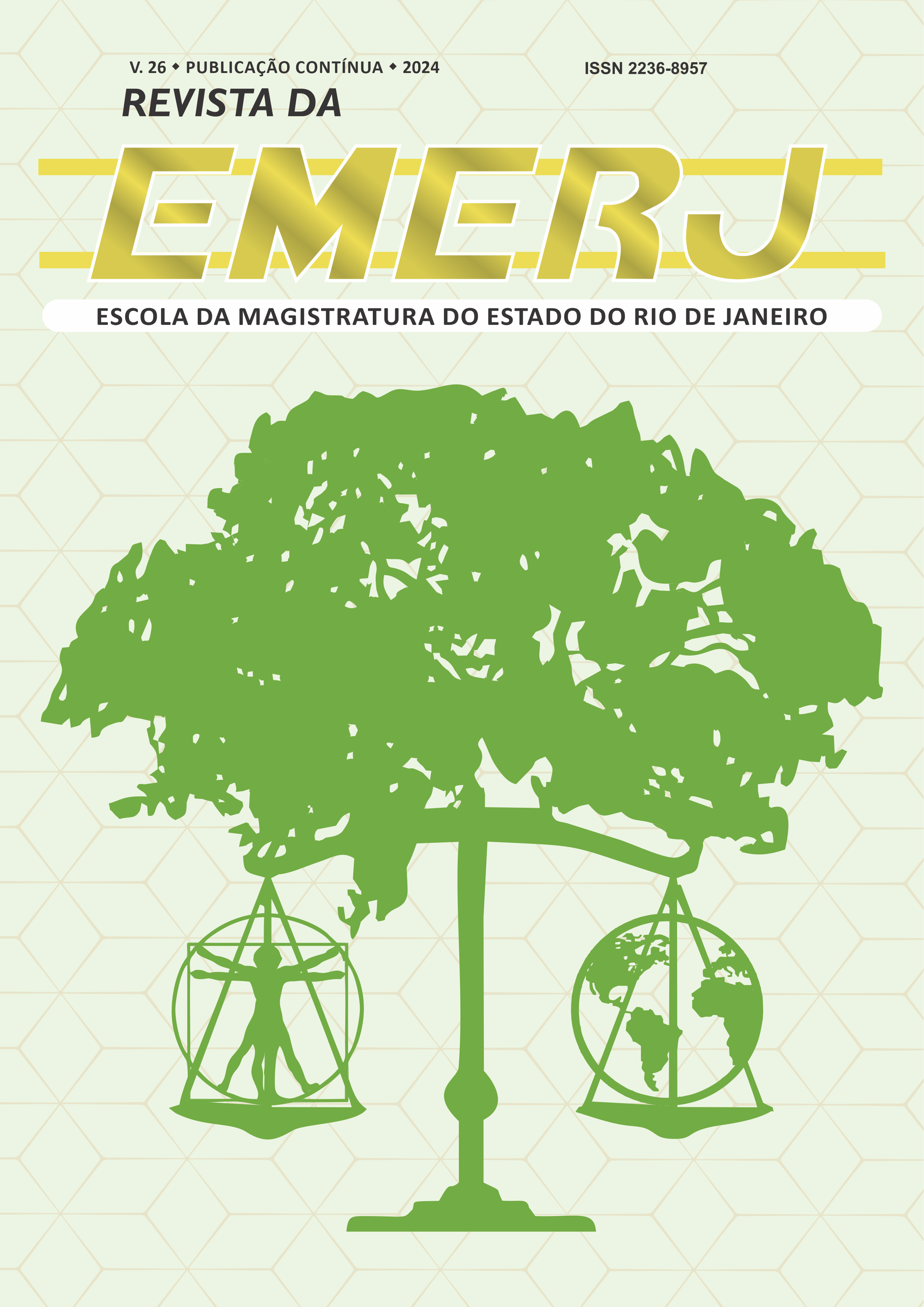Essential content
Element on the construction of a quantum-gravitational theory of fundamental rights
Keywords:
fundamental rights, essential content, quantum physics, gravityAbstract
The guarantee of the essential content of fundamental rights must be taken seriously. Therefore, it is first necessary to overcome the gnoseological boundaries that stem from the doctrinal and jurisprudential contentions that recognize in it, rhetorically, only a backup mechanism of protection equalized to the protection conferred by proportionality. Going beyond this relativization, and thus defending the guarantee’s autonomy, identifying an “essential content” subjected to an absolute protection, a Quantum-Gravitational Theory of Fundamental Rights is proposed, whose logical propositions aim to demonstrate the essential content’s autonomous operationality and functionality, as its gravitational force over the whole system of fundamental rights.
References
ALEXY, Robert. Teoria dos Direitos Fundamentais. Tradução de Virgílio Afonso da Silva. 2. ed. São Paulo: Malheiros Editores, 2015.
ASHTEKAR, Abhay. Gravity and the quantum. New Journal of Physics, [S.l.], v.7, p. 1-33, 2005. Disponível em: https://iopscience.iop.org/article/10.1088/1367-2630/7/1/198/pdf. Acesso em: 09 jun. 2021.
BONAVIDES, Paulo. Curso de direito constitucional. 31. ed. São Paulo: Malheiros, 2016.
BOROWSKI, Martin. Grundrechte als Prinzipien. 3. ed. Baden-Baden: Nomos Verlagsgesellschaft, 2018.
DREW, Claudia. Die Wesensgehaltgarantie des Art. 19, II, GG. Baden-Baden: Nomos Verlagsgesellschaft, 2005.
FROTSCHER, Werner; PIEROTH, Bodo. Verfassungsgeschichte. 14. ed. München: Verlag, C. H. Beck, 2015.
HÄBERLE, Peter. La Garantía del Contenido Esencial de los Derechos Fundamentales em la Ley Fundamental de Bonn: uma contribución a la concepción institucional de los derechos fundamentales y a la teoría de la reserva de la ley. Tradução de Joaquín Brage Camanazo. Madrid: Editorial Dykinson, 2003.
HAWKING, Stephen. Uma breve história do tempo. Tradução de Cássio de Arantes Leite. Rio de Janeiro: Intrínseca, 2015.
HESSE, Konrad. Grundzüge des Verfassungsrechts der Bundesrepublik Deutschland. 20. ed. Heidelberg: C. F. Müller Verlag, 1999.
MENDES, Gilmar Ferreira. Direitos fundamentais e controle de constitucionalidade: estudos de direito constitucional. 3. ed. São Paulo: Saraiva, 2004.
MÜLLER, Friedrich. Métodos de trabalho do direito constitucional. Tradução de Peter Naumann. 3. ed. Rio de Janeiro: Renovar, 2005.
NOVAIS, Jorge Reis. As restrições aos direitos fundamentais não expressamente autorizadas pela Constituição. Coimbra: Coimbra Editora, 2003.
NOVAIS, Jorge Reis. Direitos Fundamentais e Justiça Constitucional. Lisboa: AAFDL Editora, 2017. 270 p.
ROVELLI, Carlo. A realidade não é o que parece: a estrutura elementar das coisas. Tradução de Silvana Cobucci Leite. Rio de Janeiro: Objetiva, 2017.
SCHNEIDER, Ludwig. Der Schutz des Wesensgehalts von Grundrechten nach Art. 19 Abs. 2 GG. Berlin: Duncker und Humblot, 1983.
SILVA, Virgílio Afonso da. Direito Constitucional Brasileiro. São Paulo: Editora da Universidade de São Paulo, 2021.
SOUZA, Rodrigo Lobato Oliveira de. Fenomenologia quântica da Constituição: proatividade normativa, pulsar da realidade e mutação. In: VALENTE, Manuel Monteiro Guedes (org.). Os desafios do Direito do século XXI: genoma humano, europeísmo, poder e política, constituição e democracia. Coimbra: Almedina, 2018.
Downloads
Published
How to Cite
Issue
Section
License
Copyright (c) 2024 Rodrigo Lobato Oliveira de souza

This work is licensed under a Creative Commons Attribution 4.0 International License.
Authors who publish in this Journal agree to the following terms:
- Authors retain copyright and grant the Journal of Constitutional Research the right of first publication with the article simultaneously licensed under the Creative Commons - Attribution 4.0 International which allows sharing the work with recognition of the authors and its initial publication in this Journal.
- Authors are able to take on additional contracts separately, for non-exclusive distribution of the version of the paper published in this Journal (eg.: publishing in institutional repository or as a book), with a recognition of its initial publication in this Journal.
- Authors are allowed and encouraged to publish their work online (eg.: in institutional repositories or on their personal website) at any point before or during the submission process, as it can lead to productive exchanges, as well as increase the impact and the citation of the published work (see the Effect of Open Access).


















